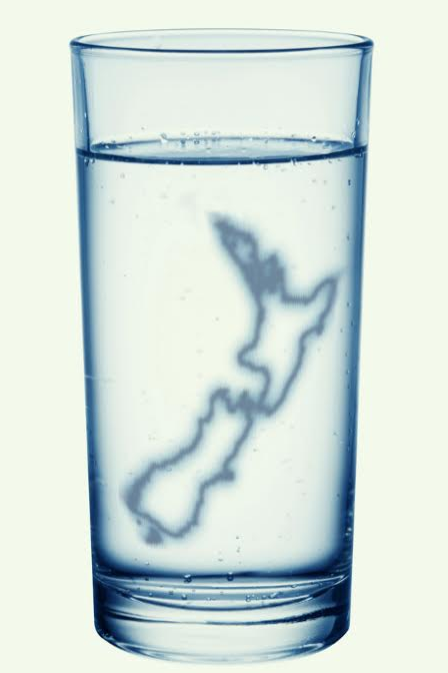New Zealanders aren’t getting enough information about the health effects of community water fluoridation to know whether it is a good or a bad thing, suggests a new study.
 The research, based on a survey of almost 3,500 people, is published today in the Australian and New Zealand Journal of Public Health. The authors found that over 30 percent people surveyed did not know if there were benefits to community water fluoridation and, when asked about health risks, 45 percent responded that they did not know.
The research, based on a survey of almost 3,500 people, is published today in the Australian and New Zealand Journal of Public Health. The authors found that over 30 percent people surveyed did not know if there were benefits to community water fluoridation and, when asked about health risks, 45 percent responded that they did not know.
Overall, 42 percent of respondents were strongly or somewhat in favour of community water fluoridation. However, uncertainty about fluoridation was also identified in the responses, with one-fifth reporting that they did not know how in favour they were of fluoridation.
Maori, Pacific and Asian respondents were significantly more likely to answer ‘do not know’ when asked about their support for fluoridation, leading the authors to suggest further research in cultural factors relating to health literacy and community water fluoridation.
Coverage of the research includes:
3 News: Kiwis split on fluoridation, despite the evidence – study
NewstalkZB: Benefits of fluoridation not widely known
NZ City News: Kiwis confused over fluoride
The SMC collected the following expert commentary.
Dr Robin Whyman, Clinical Director of Oral Health Services, Hawke’s Bay District Health Board, is co-author of the paper and comments:
“The NZ Oral Health Survey was a study published in 2009. It involved a nationally representative sample of over 3000 adult New Zealanders. This study looked at the responses to the questions about community water fluoridation.
“It showed that over half of respondents believed there are benefits to dental health from adding fluoride to the community water supply. Belief in the benefits was strongest amongst adults aged 45-54 years, 55-64 years, European respondents, people with education beyond high school and people living with the lowest levels of socioeconomic deprivation.
“There were high levels of uncertainty reported about community water fluoridation. Over 30 percent of people did not know if there were benefits from community water fluoridation and when asked about health risks from community water fluoridation 45 percent responded that they did not know.
“The questions were asked in the context of an oral health survey, but not in the midst of a campaign about community water fluoridation such as occurs when a referendum is being held. The survey therefore provides a “baseline” level of understanding about community water fluoridation and confirms that over half of the population understand there are dental health benefits from community water fluoridation. However, uncertainty is common particularly amongst Maori and Pacific respondents. It is also noteworthy that Maori and Pacific respondents reported lower levels of negativity about water fluoridation. Their responses were more commonly “don’t know”.
“The paper indicates that although benefits from community water fluoridation are expected by a large proportion of the population, there is a lack of health literacy about community water fluoridation.
“Our conclusion from the work is that there is a need to improve health literacy about community water fluoridation and that the information provided needs to consider and address the cultural appropriateness of community water fluoridation. The information needs to be provided in a culturally appropriate context.
“Further work by our research group (not included in this paper) has also looked at questions about who the respondents would prefer to make the decision about whether community water supplies are fluoridated. At present that decision is made by local government. However, the research indicates a much higher preference for the decision being made by the Ministry of Health or by other health organisations, such as the district health board.”
Dr Rob Beaglehole, Principal Dental Officer, Community Oral Health Service, Nelson Marlborough District Health Board and New Zealand Dental Association Spokesperson, comments:
“The New Zealand Dental Association, is pleased that this paper shows that the majority (57%) of the respondents surveyed believe that there were dental benefits from drinking fluoridated water compared to 10% who did not accept that water fluoridation had oral health benefits. That’s a ratio of nearly 6 to 1 in favour.
“Approximately 1/3 of those surveyed did not know whether community fluoridation was beneficial to oral health or not.
“This highlights the ongoing need of knowledgeable health professionals, the Ministry of Health, Dental researchers and scientists to continue to request the Government to put more effort into raising awareness of the safety and benefits of community water fluoridation schemes.
“The paper illustrates how the ongoing emotive information and anti-fluoridation scaremongering gets confused with the actual science. The paper supports the New Zealand Dental Association’s view that it is unfair to put the onus on local government to make the decision about whether to fluoridate or not. This is why the New Zealand Dental Association, along with Local Government New Zealand, strongly urge the Government to modify the decision making process so that skilled, knowledgeable health authorities rather than local government politicians are responsible for water fluoridation schemes.”